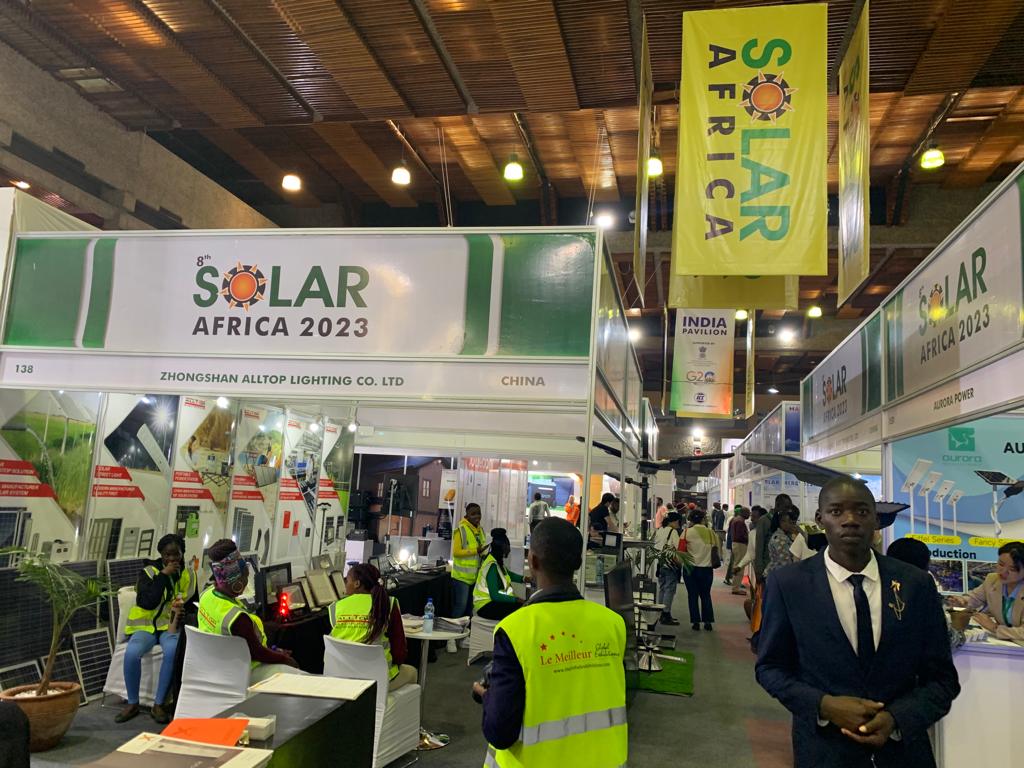Africa's annual prime solar energy expo was held at the Kenyatta International Convention Centre (KICC) in Nairobi, Kenya's Capital. It showcased new technologies harnessing, storing, and using solar energy. The expo served as a platform for East and Central Africa, attracting exhibitors from over 24 countries.
“We have seen a significant rise in attendees, with a 30% increase. This year's event has exhibitors from over 24 countries, an increase from 14 in 2018, in different categories such as batteries, inverters, and rural power generation systems,” said Duncan Njage, Regional Director of Expogroup, which organized the event. “There are over 4,000 visitors this year and over 75 exhibitors in different categories.”
Over 25,000 to 30,000 solar PV products are traded annually in Kenya. This attracted many companies to the event, especially from China and India, including Luminous Solar, Techfine, One-Inverter, Solis, Omnivoltaic, Snadi, and Solar X. Several exhibitors shared their views about the region's potential, saying it's the right time to invest in Africa's solar industry.
One-Inverter sales manager Irene Lyu said they were happy to attend Solar Africa 2023 and showcase their products in the region. “We are yet to set base in this region. However, we are open to working with industry suppliers and bringing our solutions to customers. Our 10 kWh battery is a great solution, and we hope to partner with local suppliers in the region.”
“I am happy to be here. We are a battery, inverter, and UPS solutions company. The event has been great, with many visitors interested in solar energy. Our goal now is to partner with suppliers as we will not set base in the region at the moment,” said Kyra Zhang, sales manager of Techfine.
“We are thrilled to participate in the Solar Africa exhibition and showcase our latest energy solutions to potential customers and partners in Kenya. Our products are designed to meet the energy needs of individuals, households, and businesses. Our solutions provide a reliable and sustainable source of power, reducing reliance on traditional grid power and contributing to a cleaner and greener future,” said Joy Wu, EcoFlow's Head of Latin America and Asian Pacific.
According to the Energy and Petroleum Regulatory Authority (EPRA), Kenya's renewable energy capacity reached 3 GW in June last year, with solar having a share of around 120 MW. The majority of this is from hydropower distributed by the country's utility KPLC. However, the recent drought led to low water levels and increased power costs, making electricity expensive, with a kWh unit costing Ksh 26 ($0.20).
Many projects are currently being developed in the county. In Kisumu, Ergon Solair Africa Limited is developing a 48.25 MW plant in Kibos, expected to commission in 2024 and endorsed by the Kenyan government. The Kenya Ports Authority plans to commission a 10 MW solar power plant at the Mombasa poart as part of its green energy strategy and to reduce electricity bills.
Kenya plans to spend $2.1 billion to power off-grid areas by using renewable-powered mini-grids. This shows the change to solar power is inevitable, especially with the high cost of power from the national grid. The Rural Electrification Authority in Kenya aims to install 450 mini-grids as part of the country's 2016-2021 Strategic Plan.
This content is protected by copyright and may not be reused. If you want to cooperate with us and would like to reuse some of our content, please contact: editors@pv-magazine.com.



2 comments
By submitting this form you agree to pv magazine using your data for the purposes of publishing your comment.
Your personal data will only be disclosed or otherwise transmitted to third parties for the purposes of spam filtering or if this is necessary for technical maintenance of the website. Any other transfer to third parties will not take place unless this is justified on the basis of applicable data protection regulations or if pv magazine is legally obliged to do so.
You may revoke this consent at any time with effect for the future, in which case your personal data will be deleted immediately. Otherwise, your data will be deleted if pv magazine has processed your request or the purpose of data storage is fulfilled.
Further information on data privacy can be found in our Data Protection Policy.